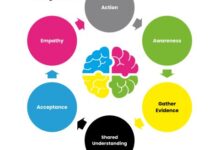
Ensuring every child receives the necessary support to develop the foundational literacy skills to access their learning can be a complex endeavour, particularly when addressing diverse needs.
When it comes to literacy learning differences such as dyslexia, we must employ the most effective, evidence-based approach for all students across all year levels.
Read the Term 3 edition of School News HERE
Embracing Effective Instructional Approaches: The approach the International Dyslexia Association identifies as one that “not only helps students with dyslexia but there is substantial evidence that it is more effective for all readers” is Structured Literacy. Where this practice has been normalised in the schools we work with, we are observing increased benefits for students with literacy learning differences.
I like to quote Bill Hansberry when he says, “Teach them all as if they’re dyslexic and you teach them better”.
Rather than exclusively targeting students with dyslexia, teaching the most effective approach to all students ensures that everyone benefits from evidence-based strategies, and everyone is included.
Aligned Intervention Support: Consistency is key to feeling like you belong both in and out of the classroom. To create a fully inclusive environment, it is essential to implement intervention support that aligns with the instructional approach taught in the classroom. We also know learning doesn’t happen in one exposure and this consistent approach enables teachers to provide opportunities for retrieval and recall of what has been taught.
Empowering Educators With Knowledge: Educators play a vital role in supporting students with literacy learning differences. When we match our instruction to what the science says about how the brain learns to read, we will enable literacy success for students. As Louisa Moats stated, “Informed teachers are our best insurance against reading failure. While programs are very helpful tools, programs don’t teach; teachers do”.
Equipping educators with knowledge and skills to effectively teach students with dyslexia enables them to adapt instruction and meet diverse needs. We can gamify it, make it social, and storify it while teaching consistently to ensure an evidence-based educational pathway is in place.
Fostering Inclusion Through Structured Literacy: Implementing a Structured Literacy approach fosters inclusion for students with dyslexia. With evidence-based strategies and explicit instruction, this approach provides a systematic framework for reading and writing skill development. This inclusive approach ensures that students with dyslexia are engaged and empowered in the learning process.

When looking at implementing this approach for inclusive literacy education, several key elements are needed:
- Ongoing professional development and training for educators to stay updated on best practices in supporting students with literacy learning differences such as dyslexia.
- Adequate resources and support for effective implementation of Structured Literacy, ensuring accessibility of teaching materials across tiers.
- A consistent lesson sequence, scaffolded teaching based on student needs, and alignment between intervention (Tier 2 and 3) and Tier 1 instruction.
- Encouraging collaborative efforts among educators, school leaders, and stakeholders for a whole-school approach to inclusive literacy education.
- Establishing clear expectations for teaching time and well-planned roadmaps to prioritise instructional sessions.
- Developing a comprehensive framework for assessment and progress monitoring to guide instructional decisions and targeted interventions.
Ensuring inclusive literacy education requires a multifaceted approach that addresses the needs of every learner, including those with dyslexia. By teaching the most effective instructional approach to all students, aligning intervention with classroom instruction, providing teacher education, and implementing the necessary elements for success, we can create inclusive learning environments where all students can thrive and feel empowered in their literacy journey.









